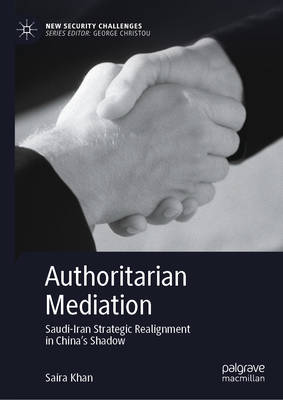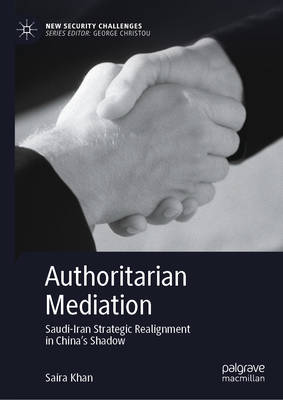
- Afhalen na 1 uur in een winkel met voorraad
- Gratis thuislevering in België vanaf € 30
- Ruim aanbod met 7 miljoen producten
- Afhalen na 1 uur in een winkel met voorraad
- Gratis thuislevering in België vanaf € 30
- Ruim aanbod met 7 miljoen producten
Zoeken
€ 128,45
+ 256 punten
Omschrijving
This book investigates the groundbreaking diplomatic breakthrough between Saudi Arabia and Iran, mediated by China in March 2023--a striking departure from the traditional Western-dominated diplomatic processes that have long shaped the Middle East. This pivotal moment reflects a complex interplay of strategic calculations, domestic pressures, and shifting geopolitical realities, with far-reaching implications for regional and global power dynamics. The analysis unpacks the reasons why Saudi Arabia--a key regional actor--chose China, rather than a Western power, to mediate its rapprochement with Iran, an enduring rival. It investigates Riyadh's strategic priorities, recalibration of foreign policy, and the broader context of its regional ambitions. Simultaneously, the book explores Iran's motivations for embracing a China-brokered deal, examining how domestic economic challenges, regime stability, and diplomatic isolation influenced its decision to pursue a thaw in relations with Saudi Arabia. By situating this diplomatic realignment within the broader decline of Western influence in the Middle East, the book highlights how new patterns of engagement are emerging--ones that often bypass traditional Western channels in favor of authoritarian-led mediation. In doing so, it offers insight into the circumstances under which authoritarian states prefer third-party mediation by fellow authoritarian regimes--and when such arrangements produce the most durable outcomes. Ultimately, the book offers a novel perspective on the evolving nature of diplomacy in a multipolar world, where emerging powers like China are reshaping the geopolitical landscape through pragmatic, interest-based engagement.
Specificaties
Betrokkenen
- Auteur(s):
- Uitgeverij:
Inhoud
- Aantal bladzijden:
- 282
- Taal:
- Engels
- Reeks:
Eigenschappen
- Productcode (EAN):
- 9783032013873
- Verschijningsdatum:
- 3/01/2026
- Uitvoering:
- Hardcover
- Formaat:
- Genaaid
- Afmetingen:
- 148 mm x 210 mm
- Gewicht:
- 485 g

Alleen bij Standaard Boekhandel
+ 256 punten op je klantenkaart van Standaard Boekhandel
Beoordelingen
We publiceren alleen reviews die voldoen aan de voorwaarden voor reviews. Bekijk onze voorwaarden voor reviews.








